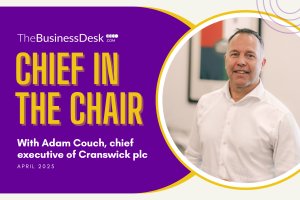Calls for Leeds to join hydrogen bus project

JCB heir Jo Bamford has revealed plans for a UK-built, 3,000-strong hydrogen bus fleet across the country in an initiative which could support both the economy post-Covid and help make an environmental impact.
Bamford claims his plans are “an ideal option for a Government that needs to boost UK manufacturing at this critical time whilst radically reducing our carbon emissions and air pollution”, and has already submitted his vision in a document to ministers.
Plans are being drawn up to introduce fleets of state-of-the-art buses – in which passengers benefit from USB charging points and more spacious seating – in places such as Aberdeen, London, Liverpool, Manchester, Brighton, Glasgow, Edinburgh and Belfast, with interest from relevant authorities.
However Bamford – who leads green hydrogen production company, Ryse, and last year acquired Wrightbus, a UK manufacturer who has made the world’s first hydrogen double decker bus – is now calling on Leeds to join the project.
He believes that in order for the city to meet its target of being a carbon neutral city as early as 2030, then it is vital the relevant authorities consider using hydrogen buses as part of its public transport system.
Mr Bamford’s vision, 3,000 hydrogen buses – about 10% of the UK’s total fleet – could be silently moving around UK towns and cities, including Leeds, by 2024. These vehicles will release only water vapour and save an estimated 280,000 tons of carbon dioxide each year, the equivalent of taking roughly 107,000 cars off the road a year.
The Centre for Cities urban policy research unit suggested that one in every 22 deaths among adults in Leeds is linked to high levels of the deadly toxin PM2.5, associated with high levels of air pollution.
Crucially, Bamford highlights, “the hydrogen used to power these vehicles will be completely green”. His company Ryse is in the process of building the UK’s first hydrogen production plant on the Kent coast. This will be powered by a near-by offshore wind farm and use electrolysis to produce hydrogen from water. Mr Bamford plans to build another four hydrogen production plants by 2025 to provide enough power for all 3,000 buses.
“Cities around the world are seeing massive reductions in air pollution as many vehicles have been kept off the road during the pandemic,” said Mr Bamford.
“However, the reality is that if we just go back to how public transport has traditionally been run, levels of pollution will quickly rise again to the same levels as before the crisis. We have an opportunity with hydrogen powered transport to make a huge difference to air quality, and for UK jobs as well.”








